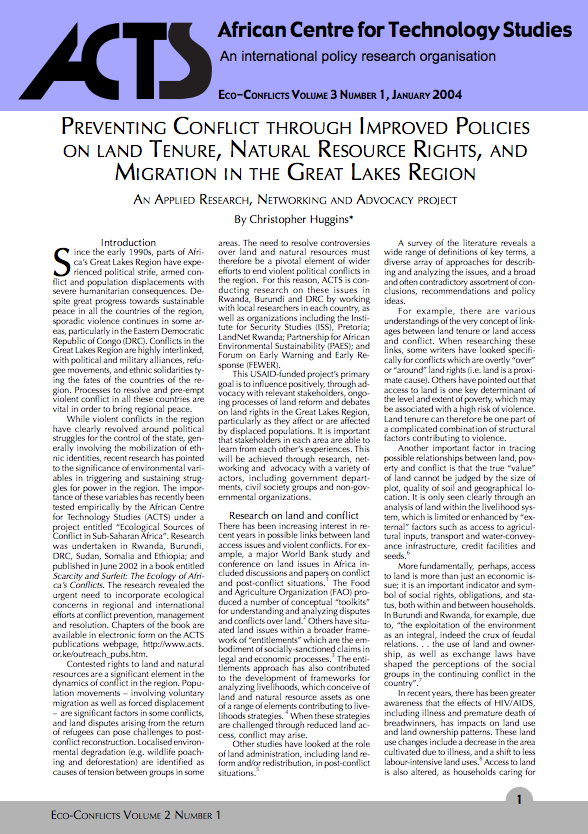Legal frameworks and access to common pool resources
In recent years, local people and rural communities have assumed increasing prominence in strategies for natural resource management.This paper briefly reviews some of the central legal issues that are associated with this shift. In doing so, its goals are limited. It does not ad dress fundamental questions about when, where and what kind of management works, nor attempt to identify the political, social, economic and environmental ingredient s for success – subjects on which there is a huge, if still inconclusive, literature.








